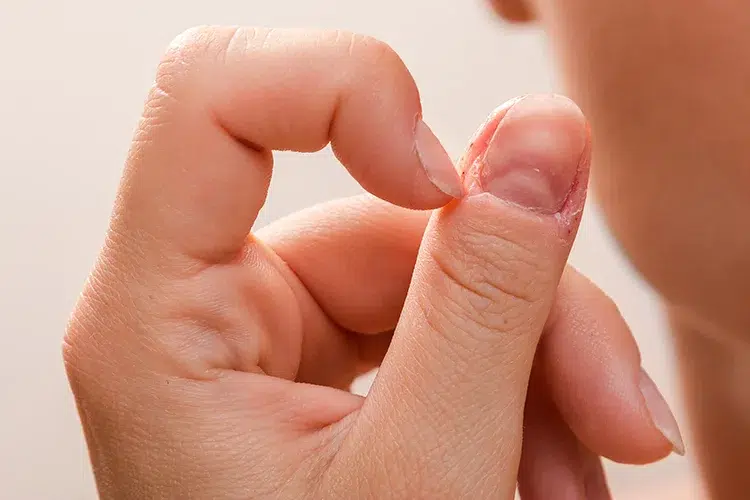Excoriation Disorder: Understanding Chronic Skin Picking

Skin-picking disorder (also known as excoriation disorder) is an established psychiatric diagnosis for individuals who repeatedly pick at their skin, leading to tissue damage, acne scarring or infection. The exact cause of trich is not well understood, but research suggests that it is closely associated with anxiety, OCD, depression and elevated stress. For many, skin picking becomes a way to cope with emotional upset, boredom or uneasiness.
At Chase Lodge Hospital, we appreciate the physical and emotional impact that these symptoms can have and provide expert assessment and treatment to help sufferers.
Symptoms and Diagnosis
People with skin-picking disorder frequently have the following symptoms:
- Uncontrolled urges to pick at their skin, leading to visible wounds or scarring.
- Failed attempts to control, cut back, or stop the behaviour.
- A change in the way the skin, hair, or nails look if they have been exposed to a pollutant. This may involve embarrassment and a tendency to avoid people when in social situations.
- Spending a lot of time picking, sometimes to the point of interfering with daily functioning.
Treatment at Chase Lodge Hospital
Our team of specialists at Chase Lodge Hospital provide a wide variety of evidence-based treatments, designed to meet the specific needs of every individual. These include:
1. Cognitive-Behavioural Therapy (CBT)
CBT is considered the best treatment for skin picking disorder. Our trained therapists at Chase Lodge Hospital can rely on:
- Habit Reversal Training (HRT): Aiding people to identify triggers and teach different responses.
- ERP (Exposure and Response Prevention): Helping the patients to gradually decrease compulsive picking actions.
2. Medication Options
In people who have skin picking associated with the condition, such as OCD, anxiety, or depression, our psychiatrists will provide SSRIs (Selective Serotonin Reuptake Inhibitors) or similar medications. These medications work by modulating a person’s mood and decreasing urges to perform compulsions.
3. Self-Management and Support Strategies
Personalised self-help: Our experts can also offer you individual advice with specially tailored self-help strategies including:
- Occupying the hands with fidget toys or stress balls.
- Using plasters or dressings on damaged areas to stop you picking them.
- Practical approaches (mindfulness/relaxation techniques) for coping with stress-related triggers.
4. Holistic and Lifestyle-Based Interventions
At Chase Lodge Hospital, we are firm believers in treating the individual as a whole, and make sure that factors including sleep, diet and exercise are suitably adjusted to encourage recovery.
Why Choose Chase Lodge Hospital?
- Diagnosis and treatment: Custom-made methods, adapted to each patient.
- Private, empathetic help: We acknowledge the distress, shame and isolation that goes with skin picking and provide a discreet and non-judgmental place for healing.
https://www.youtube.com/watch?v=n1ARWCtWxLg
Seeking Professional Support:
If you or any of your family member are experiencing skin picking disorder, it’s essential to get help. Damage control may prevent secondary complications such as infections, permanent scars or worsening emotional distress.
For an appointment with one of our experts at Chase Lodge Hospital, contact us today.
For additional information, visit the NHS website: